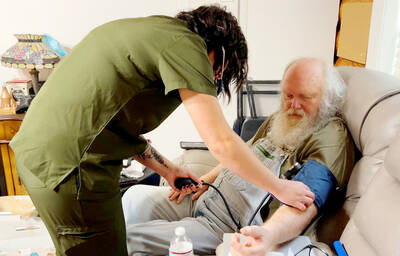At some point in their career everyone experiences feeling unfulfilled at work. But with confidence in the job market weakening, and competition for roles increasing, more people than ever are clinging to their positions, even if they have fallen out of love with their work. It’s a phenomenon that some have termed “job hugging.”
If you find yourself prioritizing a sense of security over ambition, and are unhappily sticking with your current role, is there a way you can weather the storm and even revitalize your passion for your job in the process? We spoke to career coaches, workplace psychologists and readers to find out.
REMIND YOURSELF WHY YOU TOOK THE JOB

Photo: EPA
It can be easy to lose sight of what originally drew you to your job when you are feeling dissatisfied or disengaged. Yet taking time to think about why you initially liked it can create a positive shift in your attitude and potentially give your working days more purpose.
“People often struggle with being a small cog in a big machine and working to make rich people richer, but if you can think of who you’re personally helping every day and why you first joined up, that can help you to engage better,” says career coach Alice Stapleton says. “Focus on the daily impact of your work and the people you might be helping with your tasks rather than the bigger picture.”
THINK ABOUT WHAT WORK GIVES YOU
If your reasons for doing the job are elusive, it might be easier to focus instead on the tangible benefits it can bring.
“Our careers can give us purpose but they also provide a salary, stability, routine, holidays and perhaps even a social side with your colleagues,” Stapleton says. “Once you think about the benefits your job gives you right now, you will be more energized.”
TALK TO YOUR COLLEAGUES
“Going deeper with work colleagues rather than just asking ‘What did you do on the weekend?’ can bring huge benefits,” says career coach Dina Grishin. “Connect with colleagues from other departments and those you click with, since if you have someone at work who can be a safe harbor, it can really help change your mindset.”
In a world that increasingly adopts remote working, Grishin emphasizes the need to “put yourself out there” and potentially learn from co-workers who could become mentors for career progression and change.
FIND FUN MOMENTS
For librarian Tommy Vinh Bui, engaging in harmless fun with colleagues helped him overcome the burnout he had begun to feel at work.
“Drumming up an appropriate amount of benign misconduct can help while away the time,” he says. “Sometimes, when the building is empty before closing time, I might build architecturally complex book igloos. Silliness today helps temper the drudgery of tomorrow. This eventually helped me reconnect with the purpose of my job, which is to help create a vibrant community hub.”
LEARN SOMETHING NEW
Feeling fulfilled away from your desk can have a positive impact on your work and help you feel as if you are progressing, even if your career might seem stagnant.
“As humans, we always like to feel we’re growing and learning,” Stapleton says. “By picking up a new hobby, you can give yourself a sense of learning that can make things feel more bearable day to day.”
Maya Kawashima said joining the non-profit public speaking organization Toastmasters not only became a fun hobby but also gave her extra skills to use in her work as a teacher.
“Thanks to Toastmasters, I now engage in clear and kind communication with my colleagues, family and friends,” she says. “By seeking skill sets outside work, you will always be honing your craft.”
Businessman writing in notebook
Remote working is becoming the norm in many industries, and a change of scenery can help you feel less stuck.
“I signed up to the Web site Trusted Housesitters, which allows me to house-sit somewhere else for a week or two while working,” Grishin says. “It feels like a holiday, but it’s free, and you get to do your job in the same time zone in a new environment. It totally revitalizes you.”
BRIGHTEN UP YOUR WORKPLACE
If you can’t leave your desk, then Gretchen Spritzer, professor of management and organization at the University of Michigan suggests personalizing your workspace.
“I have pictures of my family on my desk and artifacts from companies I’ve visited. They are all booster shots of purpose that surround me when I’m in a difficult Zoom meeting,” she says. “They remind me that the work I do can be really meaningful. Even if you hot-desk, you can put an image on your screensaver to help remind you of that same sense of purpose.”
“Keeping a gratitude diary can work really well when it feels as if you’re struggling,” Stapleton says. “At the end of the day, write down three things that you’re grateful for, or three things that went well. It can help you engage in the long term, as well as change your perspective to see how you’re still succeeding.”
Grishin also suggests starting the day with three pages of stream-of-consciousness writing — a technique outlined in Julia Cameron’s book The Artist’s Way — to help you reconnect with your feelings and priorities. “You will find creativity and meaning within you,” she says. “It’s an amazing way to get more in touch with yourself and see what might need to shift at work for your experience to be better.”
Focus on what you enjoy
It might sound straightforward, but reflecting on the elements of work you still like could help shift more of your daily tasks towards using those skills. “Most people don’t hate every part of their job and might be surprised at how they can move closer towards the tasks they do enjoy,” Stapleton says. “Maybe you can investigate cross-departmental

Oct. 27 to Nov. 2 Over a breakfast of soymilk and fried dough costing less than NT$400, seven officials and engineers agreed on a NT$400 million plan — unaware that it would mark the beginning of Taiwan’s semiconductor empire. It was a cold February morning in 1974. Gathered at the unassuming shop were Economics minister Sun Yun-hsuan (孫運璿), director-general of Transportation and Communications Kao Yu-shu (高玉樹), Industrial Technology Research Institute (ITRI) president Wang Chao-chen (王兆振), Telecommunications Laboratories director Kang Pao-huang (康寶煌), Executive Yuan secretary-general Fei Hua (費驊), director-general of Telecommunications Fang Hsien-chi (方賢齊) and Radio Corporation of America (RCA) Laboratories director Pan

President William Lai (賴清德) has championed Taiwan as an “AI Island” — an artificial intelligence (AI) hub powering the global tech economy. But without major shifts in talent, funding and strategic direction, this vision risks becoming a static fortress: indispensable, yet immobile and vulnerable. It’s time to reframe Taiwan’s ambition. Time to move from a resource-rich AI island to an AI Armada. Why change metaphors? Because choosing the right metaphor shapes both understanding and strategy. The “AI Island” frames our national ambition as a static fortress that, while valuable, is still vulnerable and reactive. Shifting our metaphor to an “AI Armada”
The consensus on the Chinese Nationalist Party (KMT) chair race is that Cheng Li-wun (鄭麗文) ran a populist, ideological back-to-basics campaign and soundly defeated former Taipei mayor Hau Lung-bin (郝龍斌), the candidate backed by the big institutional players. Cheng tapped into a wave of popular enthusiasm within the KMT, while the institutional players’ get-out-the-vote abilities fell flat, suggesting their power has weakened significantly. Yet, a closer look at the race paints a more complicated picture, raising questions about some analysts’ conclusions, including my own. TURNOUT Here is a surprising statistic: Turnout was 130,678, or 39.46 percent of the 331,145 eligible party

The older you get, and the more obsessed with your health, the more it feels as if life comes down to numbers: how many more years you can expect; your lean body mass; your percentage of visceral fat; how dense your bones are; how many kilos you can squat; how long you can deadhang; how often you still do it; your levels of LDL and HDL cholesterol; your resting heart rate; your overnight blood oxygen level; how quickly you can run; how many steps you do in a day; how many hours you sleep; how fast you are shrinking; how